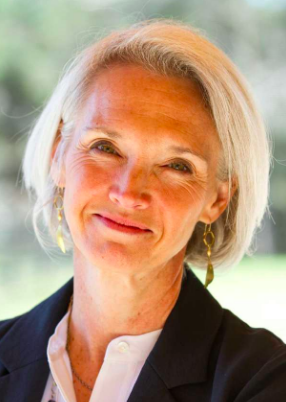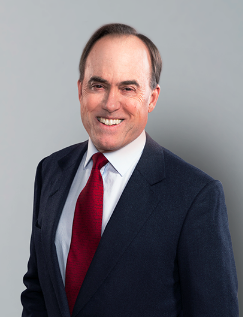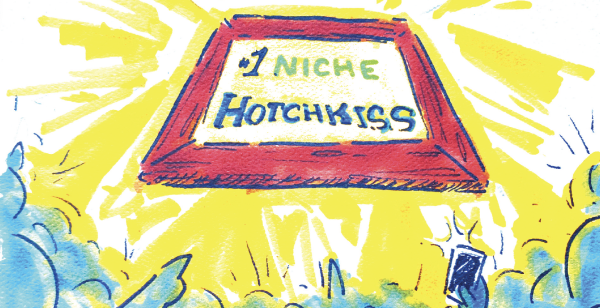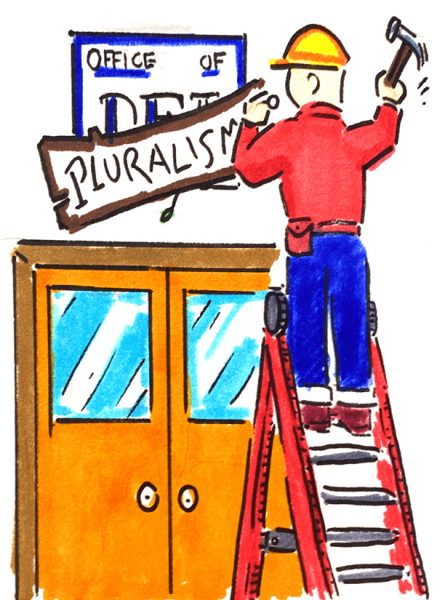Inside Local Politics: An Interview with Maria Horn, State Rep Candidate

This November 6, citizens of the northwestern corner of Connecticut will be faced with many choices on their midterm election ballots. One of these decisions will be for State Representative. Ms. Maria Horn, former prosecutor, local Democrat, and mother of Max Quinn ’19, Abby Quinn ’17, and Maude Quinn ’15 is running for State Rep in Connecticut’s 64th District against Republican incumbent and two-year representative Brian Ohler. While less than a quarter of the student body is of voting age, many students have made efforts to involve themselves in local politics.
On October 9, select students had the opportunity to meet Ms. Horn at Noble Horizons and speak with her about their ideas for politics in the district, state, and nation. On October 12, 11 students traveled to Housatonic Regional Valley High School to watch to watch her debate with Representative Ohler.
Ms. Horn plans to visit Hotchkiss to speak with students about her campaign and experiences in American politics. The following is an interview conducted with Ms. Horn examining her experience on the campaign trail, her qualifications for State Rep, and her policy ideas for the 64th district and state of Connecticut.
What inspired you to run for State Representative? What was the moment when you decided you wanted to run? Why make the switch from finance and law to politics?
I would describe the “moment’ as one where suddenly many pieces of a puzzle all settled into place. As I was reminded by some old friends after I announced my run, I have actually come close to running for office several times. In high school, I was one of those people who ran for everything and had strong opinions on more topics than was probably warranted. In college, I drifted away from that because of what I perceived as a tendency by a certain group of people to run because they wanted to burnish their resumes. That was probably not entirely fair, but it felt performative to me, and not authentic, so I got involved in other things.
But I remained active in various issues that were important to me, including women’s reproductive choice, which was an area where a lot of young women became active in the 1980s, as the Republican party began to embrace a particular set of faith-based principles and caused many of us (I grew up in a Republican family and began my own political life as a Republican) to leave. I continued to channel my political interests into [other] issues – literacy and education, criminal justice reform, and domestic violence, for example. That kind of advocacy work felt more immediate to me, in terms of its impact on the communities I lived in. And I chose government work rather than the private sector after law school, because it was meaningful and challenging work that had a real impact, not because it was a steppingstone to something else. But the election of 2016 changed the math for me and government became a more urgent concern – not just for political reasons, but for institutional ones. A lot of institutions I had taken as bedrock were suddenly vulnerable. The attacks on our justice system and rule of law were particularly alarming, among many others. Not to mention the disregard for science, and, you know, facts. Which exist.
I also want to highlight the importance of marches and rallies. Sometimes these feel like empty symbols, but the Women’s March in January 2017 (which I attended in DC) let me know that there were a lot of people out there who felt as I did, and that they were prepared to work for change. I’m a fundamentally practical person, and that moment turned me from despair to possibility. And, looking around for opportunities to change direction, I recognized the importance of state government. While I saw chaos, dysfunction, and an abandonment of principle at the federal level, there were things happening in state government. But were we protecting CT from what was happening at the national level, or was it seeping into our state politics, too? Running to represent a district I knew and loved felt like the most important thing I could do.
You mention on your website that as a federal prosecutor, you “faced drug dealers, money launderers, and all kinds of complex fraud… where vulnerable people were targeted, exploited and attacked.” In what issues do you see this most today and what specific policies do you believe will address these issues?
I think my work as a federal prosecutor is relevant both for the skills and approach you use in that job and the subject of the work. Re. the former, my job was to do justice, not to be partisan or pure[ly a] zealous advocate, as in most areas of the legal work. You investigate, try to get at the root causes, and make decisions about levels of responsibility and proportionality, who to charge to the fullest extent, who not to charge. I did a lot of narcotics cases, and in the early stages of an investigation that often meant diverting people at the low-level into programs that could treat their addiction, get them housing, get custody issues with their kids sorted. You find that you are just as proud of those who you successfully prosecute as of those you don’t. There’s a lot of teamwork involved in those investigations. In court, you have to be persuasive, use reasoned discourse, and show respect to those on the other side.
Re. the subject of the work – you cannot work in this field without seeing the disparate impact our system has on different communities, whose encounters with the police are dramatically different in both frequency and outcome, and who disproportionately fill our jail cells. That has corrosive effects on our society, and I think we have to address that head on. And you learn something both about addiction and those who prey on the addicted or otherwise vulnerable.
Could you expand more on your fiscal policy? How do we keep private sector jobs in Connecticut and in what ways would you modify the state budget?
Larger companies that have recently left CT have not tended to go to low tax environments. They moved, for example, to MA, for the stated reason that they had access to a more desirable work force that lived in vibrant urban areas that had transportation, connectivity, and housing. CT needs to focus on creating that environment here, by investing in our infrastructure, both digital and physical, for example. If we slash these future-focused investments, we can expect companies that can, will move. But resources will be scarce, so we will have to examine every program and ask: What priority does it serve? Should that be a priority of government? Is it achieving that priority and helping those it was intended to help? Is it doing so in the most cost-effective manner? We will have to ask hard questions and be clear about our values.
Could you expand more on how education is critical to combating the opioid epidemic? What other methods do you feel need to be taken to combat this crisis?
We need to focus on programs that are shown to work combatting opioid abuse. For example, many schools still have DARE programs funded by town budgets, and there are many questions about whether these programs have any effect whatsoever. As an alternative, we know that substance abuse is strongly correlated with childhood trauma and stress, and programs that focus on that connection, giving young students the coping skills to manage those challenges in a healthy way, do have a demonstrated effect on reducing future substance abuse. They save lives, and they are also much more cost effective than dealing with abuse later on.
I also think about substance abuse through the lens of efforts to stop kids from smoking. When I was in elementary and high school, we went to countless programs telling us smoking was bad for us, and that we just shouldn’t do it. It didn’t work very well. What worked a lot better was having young people understand that smoking wasn’t rebellious at all, that they were in fact being manipulated by corporate interests who just wanted to sell them stuff. That approach made smoking a whole lot less appealing, and gave young people the chance to make a choice that was empowering, not just submitting to authority. We need to find ways to communicate that message on opiates: there are a whole lot of ruthless people out there just trying to make money off you.
What would you say to young Americans who are just now getting to vote for the first time? Specifically, what would you say to those who have not or do not plan to register?
I would say REGISTER! It’s easy and it gives you the choice. When you let other people decide your future, then you get the future they want, not the one you want. And if you band together, you can bet that politicians will start paying attention, because they will have to.





